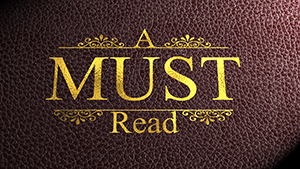Agatha Christie’s ‘The Mysterious Affair at Styles’
 This week I dove into the detective novel that started the theme of “manor house mysteries”: Agatha Christie’s The Mysterious Affair at Styles. This is the first novel of Christie’s Hercule Poirot, the enigmatic sixty-something detective who is known for pursuing crimes because he simply “does not approve of murder,” though there is little evidence that this was Christie’s first novel. Within the first ten pages it becomes obvious that Christie was heavily influenced by Sir Arthur Conan Doyle. Arthur Hastings, the narrator, and Poirot snugly fill the Watson/Sherlock archetypes. The book opens with Hastings returning from the Western Front of World War I on sick leave, when he encounters John Cavendish, an childhood friend. John quickly invites Hastings back to his family home, and describes his mother’s tumultuous marriage history. A recently wedded husband to Mrs. Cavendish appears to be an outlandish fellow, and Hastings finds himself sitting in the middle of a mystery involving money, revenge, bad blood, and violence. Hastings calls upon his acquaintance, Hercule Poirot, to help solve the case.
This week I dove into the detective novel that started the theme of “manor house mysteries”: Agatha Christie’s The Mysterious Affair at Styles. This is the first novel of Christie’s Hercule Poirot, the enigmatic sixty-something detective who is known for pursuing crimes because he simply “does not approve of murder,” though there is little evidence that this was Christie’s first novel. Within the first ten pages it becomes obvious that Christie was heavily influenced by Sir Arthur Conan Doyle. Arthur Hastings, the narrator, and Poirot snugly fill the Watson/Sherlock archetypes. The book opens with Hastings returning from the Western Front of World War I on sick leave, when he encounters John Cavendish, an childhood friend. John quickly invites Hastings back to his family home, and describes his mother’s tumultuous marriage history. A recently wedded husband to Mrs. Cavendish appears to be an outlandish fellow, and Hastings finds himself sitting in the middle of a mystery involving money, revenge, bad blood, and violence. Hastings calls upon his acquaintance, Hercule Poirot, to help solve the case.
If Hastings’ backstory sounds somewhat similar to Watson’s, that’s probably because the two are almost identical. Despite the similarities, Hastings is often shown to be much more incompetent than Watson, especially when it comes to investigating women. It may be considered blasphemy by many, but this novel is far better than the Sherlock Holmes cases, and Poirot is a far more likable detective. Christie establishes herself as a master of plot with her first novel, and it is a title well-earned. Unlike Edgar Allen Poe’s detective works and Sir Arthur Conan Doyle’s cases, no evidence in The Mysterious Affair at Styles is made up on the spot. Whereas Holmes would point out details and call upon vast, random knowledge in a flash, every piece of evidence in this story is present for the reader to observe alongside Poirot. Furthermore, while Poirot holds extensive knowledge about a variety of subjects, most of his major observations involve logical connections between items, meaning the reader can actually have a fighting chance of finding out who the killer is before Poirot reveals his findings. As a character, Poirot is a truly sound, moral man. He fills the convention of being eccentric, but comes across more as everybody’s favorite, wacky grandfather, rather than an arrogant sociopath like Holmes. Morally, he shows a far more strict understanding of right and wrong than his contemporary counterparts in detective literature, and does not allow his fascination with the case to override his sense of duty.
Agatha Christie’s The Mysterious Affair at Styles earns its label as a classic example of fine detective literature, and is a novel that should be read, and could be enjoyed, by just about everyone. Christie’s debut novel has given the detective genre innumerable tropes, but is still immensely enjoyable due to its lovable protagonists, ingeniously-woven plot, and tendency to give readers a chance to test their investigating chops. If mysteries are your cup of tea and you haven’t done so already, pick up The Mysterious Affair at Styles as soon as possible. While some events are a little predictable, the level of inter-connectedness that Christie showcases in her plot is something that should be experienced by all fans of fictional literature.












